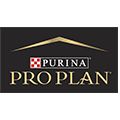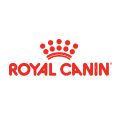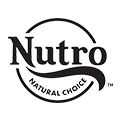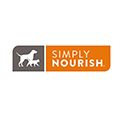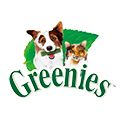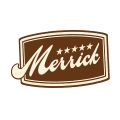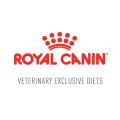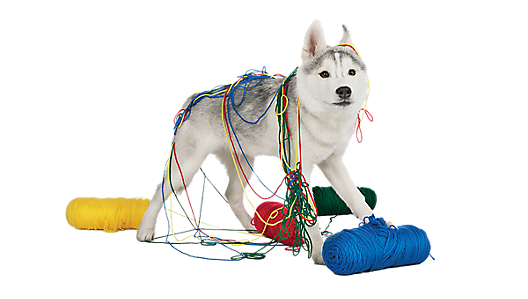
 top
top
DOG / nutrition
What is Limited-Ingredient Dog Food?
Overview
Is limited-ingredient dog food right for your pet? Every pet parent wants to feed their dog the highest quality food to help them live their best life. Knowing what food to pick can be overwhelming because there are so many choices and every dog has different nutritional and dietary needs. The best option for learning what food to buy your dog is to talk to your veterinarian. They will always be the best and most trusted source of information for anything regarding your dog’s health and wellbeing.
There are tons of specialized diets available for dogs and it’s important to choose the food that will best suit your pet. Not every dog will need a specialized diet. Some of those specialized diets include ones like a limited-ingredient dog food diet, grain-free dog food, natural dog food, dog food for sensitive stomachs, and more.
What is Limited-Ingredient Dog Food?
Some pets may benefit from a limited-ingredient diet (LID). Limited-ingredient dog food is food that contains a single source of protein and carbohydrate. These diets are generally used for pups with food sensitivities/allergies to certain sources of proteins or other common ingredients used in most dog diets.
The ingredients that are present in limited ingredient diets are selected to make sure your pet is avoiding the things that upset their stomachs or cause unwanted symptoms.
Knowing what ingredients are right for your dog will involve a trip to the vet where you can learn more about what could contribute to your dog’s symptoms.
If your dog has tummy troubles or other ailments including scratching/skin issues, their diet might not be the source of their symptoms. It’s important to always talk to a vet before making changes to your pup’s diet and routine.
Potential Benefits of Limited-Ingredient Dog Food:
The actual benefits of limited-ingredient dog food vary from pet to pet. It is hard to tell whether or not your dog will show signs of positive change by switching their diet without first talking to your vet. Even after you switch, there is not a guarantee that your dog’s food-related troubles will resolve. Some of the potential benefits of LID dog food include:
1. Helps with Food Sensitivity - As was mentioned earlier, limited-ingredient diets are typically given to dogs with food sensitivities. Just like humans, pups can have trouble digesting certain ingredients. Common sensitives revolve around certain sources of protein or even grain in their food. The perfect LID diet might be one that removes those ingredients and replace them with a novel protein and carbohydrate source (one they have never tried before).
2. Improve Nutritional Absorption - LID diets have been shown to help some dogs better absorb the nutritional elements of their food.
3. Relieve Skin Problems - Food sensitivities can often manifest as skin conditions in dogs including dry skin, itchy skin or even hot spots. Removing the ingredients that cause these issues from their diet can sometimes help relieve those problems.
4. Improved Digestion - If your dog’s diet is a source of irregular bowel movements or diarrhea, then changing to a LID diet might help improve their digestion so that they have a more regular and consistent stool.
When Should You Change Your Dog’s Diet?
Pet parents should only ever change their dog’s diet when they are instructed to do so by their vet. If your dog is showing signs of food sensitivities or allergies, then you should consult with your veterinarian to see if their diet may be the source of their discomfort. Signs of food sensitivities in dogs include:
- Diarrhea
- Vomiting
- Frequent Bathroom Trips
Signs of Food Allergies Include:
- Diarrhea
- Vomiting
- Ear Infections
- Skin Irritation
- Persistent Scratching
- Hair Loss
- Poor Coat Health
- Skin Lesions
Other Types of Dog Diets:
Limited-ingredient dog food is not the only specialized diet that pet parents can feed their dogs to help them live their best life. Talk to your veterinarian about which diet might be the best fit for your four-legged friend.
1. Grain-Free Dog Food - Food absent from common grains like rice or wheat.
2. Natural Dog Food - Food made with only natural ingredients.
3. Dog Food for Sensitive Stomachs - Food designed to help pups with sensitive tummies.
4. Vet-Authorized Diets - diets that require vet authorization to purchase and are designed to help with specific issues and conditions.
Finding the right diet can be difficult when you don’t know where to start. Always start with a conversation with your pet’s veterinarian to see if they might benefit from a limited-ingredient dog food diet.
Information in this article is not intended to diagnose, treat or cure your pet and is not a substitute for veterinary care provided by a licensed veterinarian. For any medical or health-related advice concerning the care and treatment of your pet, contact your veterinarian.



